She Went All the Way Read online
Page 3
Yeah, and maybe Jack Townsend hadn’t meant to break her best friend’s heart.
Disgusted, Lou spun around and threw open the door to the terminal…
And collided with Jack Townsend, who was standing by the coffee counter, looking absurdly at ease—and handsome—in jeans and a brown leather coat.
“Oh, there she is.” Vicky, having returned from her phone call, wore a faintly frantic expression. On Vicky, of course, even frantic looked gorgeous. “Look what the cat drug in, Lou. Well, I can see that you’ve discovered that for yourself.”
Jack Townsend looked up from the cup of coffee he had barely managed to keep from dropping, thanks to Lou’s graceless exit from the ladies’ room.
And the minute those cool blue eyes met hers, Lou felt her face turning a deep, burning umber. She’d long ago stopped dyeing her hair a darker shade than its natural auburn, since by the time she’d entered college, everyone seemed to have forgotten about the whole Carrots Calabrese thing.
But there were still times she yearned to be anything but a redhead, and now was one of them. She blushed often and easily…so easily that sometimes all she had to do was think about blushing, and she found herself doing it. The Excuse me she’d been about to utter for having run into him died on her tongue. All ability to formulate even the simplest of sentences left her as heat consumed her face. Suddenly, Lou Calabrese was on fire.
But any woman, Lou told herself—not just a redhead whose ex-boyfriend had run off with his ex-girlfriend—would blush upon encountering Jack Townsend. That’s because he was, not to put too fine a point on it, six foot two inches and two hundred pounds of hard muscle, all wrapped in an irresistibly long-limbed package. With his thick dark hair already turning noticeably gray in spots, and his nose that was no longer aquiline due, it was rumored, to a long-ago prep school fight—the guy was one of the Manhattan Townsends, of Townsend Securities, born with a silver spoon in his mouth and legacies coming out of his finely sculpted rear end—Jack fell far short of being the teen heartthrob material Barry had always been. Barry—aka Bruno di Blase—was a bit of a pretty boy, truth be told. Jack Townsend would never, ever be considered even remotely pretty…let alone a boy.
But he was good-looking. More than good-looking. With his piercing blue-eyed gaze and dark, invariably razor-stubbled jaw, Jack Townsend was, in the opinion of many a moviegoer, God’s gift to heterosexual women everywhere. Even more astonishingly, he did not appear to know it: Not for Jack Townsend the Armani suits and leather pants Barry traditionally sported, or the Hollywood parties and clubs Barry haunted, in hopes (though Barry denied this) of paparazzi snapping his photo. Jack Townsend, when not working, kept to himself on his seventy-acre ranch in Salinas, almost never appearing in public except to promote his next film…a fact Lou guessed had probably contributed to the dissolution of his relationship with press-hungry Greta Woolston more than anything else.
But Greta ought to have known that in taking up with Jack Townsend she was not aligning herself with a man comfortable with the trappings of Hollywood stardom. Why, Jack Townsend, Lou knew for a fact, having witnessed the spectacle herself on more than one occasion, would not allow body doubles or even stuntmen to take his place during nude scenes or action sequences. And makeup? Not on Jack Townsend’s face. No one touched that head, not even hairstylists…which explained the sprinkle of gray.
And the dark circles—so like her own—Jack Townsend currently sported under his eyes? Tim Lord was going to have to pay a fortune to have them removed after filming, frame by agonizing frame, since Jack would sooner eat glass than wear concealer, even for his closeups.
Yes, Jack Townsend was many things: a makeup artist’s nightmare, a director’s sure ticket to box office success, and just about every woman in America’s dream date.
But one thing Jack Townsend was not, in spite of his incredibly good looks and laid back charm, was one of Lou’s favorite people.
And it was obvious by the look on Jack’s face when she bumped into him that Lou’s feelings of intense dislike were heartily returned. Jack glanced at Lou—seeming to look straight through her with those preternaturally blue eyes—then looked away again, and muttered, in that sardonic tone in which he said just about everything, “Oh. It’s you.”
Was it possible that this day, Lou wondered, which had not started out at all auspiciously, could get any worse?
3
Lou. It would have to have been Lou, wouldn’t it?
Oh, well. He ought to have expected it, the way things had been going. From last night’s debacle in the hotel suite—courtesy of Melanie Dupre—to this morning’s mad dash to escape the press staked out in the lobby, not to mention the picketing environmentalists, furious over the state’s decision to allow Tim Lord to go ahead and blow up part of Mount McKinley—Jack Townsend’s life had turned into one long continuous nightmare.
No, nightmare wasn’t right. It wasn’t a nightmare. Nightmares were frightening. This was just…
Ridiculous.
Really. He was irritated at himself for having gotten into the situation in the first place. Now would come the endless questions, the speculation, the suspicion, the snickers.
And he couldn’t tell them it was all Melanie’s fault. He couldn’t say, “I decided I’d had my fill of actresses, so I told Melanie she was going to have to go, and she trashed my room.” No, he couldn’t say that, because that wouldn’t be gentlemanly.
And though Jack felt that his cold, somewhat autocratic father hadn’t taught him all that much, one thing he had learned from Gilbert Townsend was never to kiss and tell. The drawback to this rule, which Jack never failed to adhere to, was that from this day forward, he would never be able to check into a hotel without arousing comments about love seats.
And now this. Lou Calabrese. Perfect. She would, of course, have picked this day, of all days, to pay a visit to the set.
Not that Jack was ever unhappy to see a pretty woman show up anywhere. It was just when that woman happened to be Lou Calabrese that he tended to mind.
Because Lou Calabrese, to put it bluntly, was a pain in the ass.
All writers were impossible. He knew that only too well, having taken up with his fair share of them in the past. But screenwriters were the worst. Temperamental, self-absorbed artistes, with delusions of grandeur and an inflated sense of their own importance.
And Lou Calabrese was the worst of them all. Change one word of her precious dialogue, and an actor—as Jack knew only too well—would never hear the end of it. Why Tim Lord had agreed to work with her again, Jack couldn’t imagine.
Then again, Tim was probably unaware of just how much of a pain Lou Calabrese could be. Greta and Bruno probably hadn’t made any filmworthy ad libs during the shooting of Hindenburg. Neither one of them was exactly rocket scientist material.
Not, of course, that Lou’s dialogue wasn’t usually right on. Hey, it had won her an Oscar, right? But still. It’s always funny until someone gets hurt. Who did she think she was kidding? Arnold had Hasta la vista, baby. Eastwood, Make my day. Willis had Yippee-ki-yay expletive deleted.
But Jack Townsend was supposed to be happy with It’s always funny until someone gets hurt?
“Oh.” Vicky looked from Lou to Jack and then back again. “Right. You two go way back. The original Copkiller. God. What was that, like, five years ago?”
“Six,” Lou said.
Jack would have to have been deaf to have missed the acid in her tone. Oh, so the feeling was mutual, was it? Like that wasn’t completely obvious, given the indignities he’d been forced to undergo as Detective Pete Logan in Copkiller II and III.
Hey, fine with him. She wasn’t exactly his favorite person in the world, either.
“Six years. I can’t believe it’s been that long….”
Vicky’s voice trailed off. She seemed to get the message that it might be better if she just shut up. That had been, Jack remembered now, the good thing about Vicky: she wasn’t dumb.
A little flaky, with her t’ai chi and her deep tissue massages and her bringing home every stray animal that came her way and all of that, but smart enough when it counted. Except for that whole—what was it again? Oh, yeah—intimacy issues thing. Whatever that had been about.
Now Vicky was looking at her watch. “Oops, sorry, I gotta go.”
Lou’s eyes—already ridiculously enormous, although their size might have been partly due to their darkness in her pale face; she looked like she’d gotten about as much sleep as he had—widened. Really, what good were eyes like that, Jack couldn’t help wondering, on a screenwriter? They were leading lady eyes…or ingenue eyes, at the very least. They were wasted on a woman who spent eight hours a day in front of a computer monitor.
As was, he couldn’t help thinking, that body. If Lou thought she could hide those curves under that thick cable-knit sweater and brown wool slacks, she was sadly mistaken. Even a less practiced gaze than his own could detect the narrow waist, high round breasts, and slender legs those loose-fitting garments were supposed to hide. She was tall, too, at least five eight, and that was without the help of two-inch heels on her boots. Lou Calabrese had the kind of endlessly long legs a man wouldn’t mind having wrapped around him on a winter’s night….
Now what had put that image into his head?
Maybe the same thing that caused him to reflect that Lou Calabrese’s hair, a shoulder-length riot of russet-colored curls, seemed to cry out for fingers to be plunged into its thick waves. It even had the appearance of being natural, both in color and curl, making it, according to the dictates of the current Hollywood style for sleek blond bobs like Greta’s and Vicky’s, hopelessly retro….
A fact about which Lou apparently either didn’t know or didn’t care. The bronze-colored parka she wore over the cable-knit sweater, more functional than figure-flattering, bore out the latter theory. There might, Jack reflected, be something uniquely refreshing about being with a woman who was not a slave to the whims of the world of fashion. Especially a woman who’d look good no matter what she put on.
Still, Lou Calabrese? He pitied the man Lou Calabrese sunk her sensibly short nails into next. Those kind of looks coupled with a brain capable of summoning up the myriad tortures she regularly inflicted upon her hapless character, Detective Logan? A deadly combination.
Look how she managed the defenseless female thing. She was doing it right in front of him, right now, those lush raspberry-colored lips parted in distress, those brown eyes wide and dewy-looking as she asked Vicky, “Go where?”
If Jack hadn’t decided a long time ago that Lou Calabrese was devoid of human emotion, he might have felt some manly protectiveness for her, she looked so genuinely alarmed.
As it was, however, he knew she’d welcome his help about as much as she’d welcome a swarm of killer bees. Look how grateful she’d been over the “I need a bigger gun” thing. Had that ever not turned out the way he’d anticipated.
“But you can’t go, Vicky,” Lou was saying. “I thought you were flying out with us to the set.”
“I was, honey,” Vicky said. Vicky, Jack remembered, had always been very loose with the endearments. No one else, he was quite sure, would ever refer to Lou Calabrese as honey. Sweet as she might look, honey Lou was definitely not. “But when I called in just now for my messages, there was one from Tim. He phoned down from the set. Something’s wrong with Elijah. A little fever, I guess. The hotel called him up in Myra. So now I’ve got to go do the stepmommy thing. I’ll catch up with you this afternoon, though, I swear. I mean, unless the kid’s gangrenous.”
This news was clearly distressing to Lou. She reached out and grabbed Vicky’s arm.
“Vicky,” Jack heard her growl. No, really. Growled, like a tiger. Much in the way she’d growled at him, the day he’d substituted the It’s always funny until someone gets hurt line with the I need a bigger gun thing. Only this time, she used less expletives. “I swear to God, if you leave me alone with—”
Jack was distracted from this interesting conversation by the woman behind the coffee counter, who suddenly, and quite shrilly, declared, “Why, you’re Jack Townsend!”
Jack blinked at the pleasant-looking middle-aged woman who’d provided him with that much needed cup of coffee.
“Yes,” he said, realizing that really, there was no way of getting out of it. “I am.”
“Oh, my Lord,” the woman cried, her eyes bulging. “Oh, my Lord, I wasn’t sure at first, but now I heard you talk, it is, it is you!”
Jack, tired as he was, couldn’t help grinning a little. Fans were almost as big a pain in the ass as screenwriters. Yet without them, just like screenwriters, Jack wouldn’t be where he was today.
Not that, particularly on a morning like this one, he considered that such an enviable position.
“Yes,” he said, because there was no use denying it. “It’s me.”
The woman’s face broke into a beatific smile.
“I’m Marie,” the woman gushed. “Mr. Townsend, I can’t tell you what a hoot this is. I heard you were here, you know, in Alaska, filmin’, but I never thought I’d actually lay eyes on you myself. Did you know that you are my favorite actor of all time? All time. ‘STAT’ was my favorite show…well, until you left it. It went totally downhill from there, I don’t care what anybody says. And Copkiller is my favorite movie.”
The pause in her babbling stream of compliments enabled Jack to jump in with, “Thank you very much, Marie. I—”
But he didn’t get a chance to finish, because as Jack started to crumple his coffee cup, its contents drained, Marie, behind the counter, screamed, “No!” When Jack glanced at her in astonishment, the woman added, with a sheepish blush, “I was gonna keep it. You know, the cup Jack Townsend drank my coffee from.”
Jack looked down at the crumpled cup. This—not the long hours, the months spent away from home, the endless script changes he was forced to commit to memory at a moment’s notice, the hounding of the press—was what he hated most. People—fans—saving his used drink containers, napkins, on one memorable occasion, even a Kleenex. There was no one—no one single person on this earth—whose used Kleenex Jack would want to keep, and he could not understand the compulsion to do so in anyone else…particularly when it was his used Kleenex in question.
“How about I sign something for you?” he offered gamely while shoving the cup into the trash. “That might, you know, impress people more than an old coffee cup.”
“Oh!” Marie shoved a pen and notepad across the counter at him. “If you don’t mind. Can you make it out to Marie?”
“Sure I can,” Jack said, lifting the pen.
“And can you write it?” Marie grinned at him shyly. “You know. Pete Logan’s famous line.”
Jack, conscious that Lou was watching, couldn’t help but smile. It had to gall her, he knew, how popular that line had become.
“Sure,” he said, and scribbled, I need a bigger gun above his signature. “Here you go,” he said, when he was finished, handing pen and pad back to her. “Have a good one.”
Marie beamed. She also, he noticed with a grimace, fished his coffee cup from the trash, and set it carefully aside.
Why, he asked himself, not for the first time that day, or even that hour, hadn’t he become a lawyer, the way his father had wanted him to?
But Marie wasn’t done.
“Hey,” she said, widening her eyes at Vicky. “You—you played the captain’s wife! In Hindenburg!”
Vicky’s smile brightened her face like a new dawn.
“Yes,” she said. “That was me.”
“Can you sign this for me?” Marie asked, shoving a napkin and pen in Vicky’s direction.
“Sure,” Vicky said, with a smile, and stepped forward to seize the pen. She would, Jack knew, accompany her signature with a smiley face and heart. He had yet to meet a woman in Hollywood who could resist adding a smiley face or heart to her autograph. Greta had even occasionally doodled a star by
her name…well before she’d ever become one, making the whole thing seem a sort of self-fulfilling prophecy.
Marie dragged her gaze towards Lou, looking hopeful. “What about you?” she asked. “Are you somebody famous, too?”
Jack, expecting to hear a long recital of projects on which Lou Calabrese had worked, prepared to restrain a yawn. No writer that he’d ever met could resist tooting her own horn, and Lou’s list of accomplishments was a particularly impressive one, as everyone knew—Variety having endlessly reported the fact—that she’d sold her very first screenplay, the original Copkiller, at the tender age of twenty-two.
But he stopped mid-yawn when, to his surprise, Lou merely shrugged and said, her smile every bit as brittle as Vicky’s had been beguiling, “Sorry. I’m just a writer.”
Just a writer? Just a writer? That was like saying that…well, that Tim Lord was just a director. Just a writer? It had been a long, long time since Jack had heard so self-effacing a statement from a member of Hollywood’s elite. He regarded Lou Calabrese curiously. What, he wondered, was going on here?
Marie, however, was visibly disappointed.
“Oh,” she said. Then she seemed to rally. “Well, would you mind signing something for me anyway?” she asked, taking her pen back from Vicky. “Because you never know, honey. Maybe you’ll be famous someday, too, like these two.”
That was when Lou did something extraordinary. She smiled.
And when Lou Calabrese smiled, Jack was surprised to see, her face went from being merely pretty to downright beautiful, something he had never before had occasion to notice, since Lou generally wore a look of extreme dissatisfaction while watching him perform the role of Detective Logan.
“Thanks,” she said, to Marie, in a voice that, like the smile, he’d never heard her use before. The reason the smile, he realized, was so striking was because its warmth was reflected in those deep brown eyes, a rarity in LA circles, where most smiles were about as genuine as the teeth they tended to reveal. She scrawled her name on the proffered napkin. No smiley face, Jack noticed. No heart. And certainly no star.

 Bridal Boot Camp
Bridal Boot Camp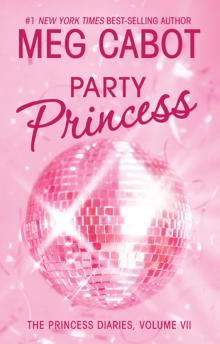 Party Princess
Party Princess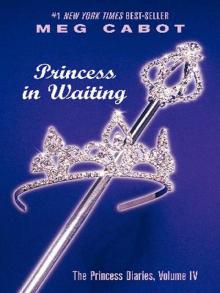 Princess in Waiting
Princess in Waiting Being Nikki
Being Nikki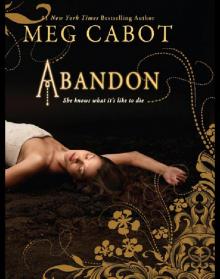 Abandon
Abandon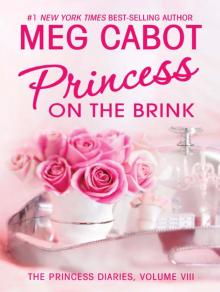 Princess on the Brink
Princess on the Brink Darkest Hour
Darkest Hour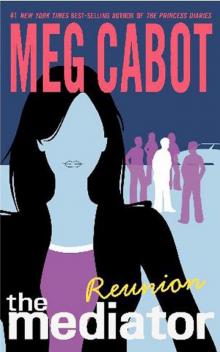 Reunion
Reunion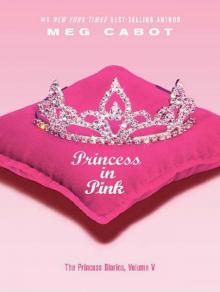 Princess in Pink
Princess in Pink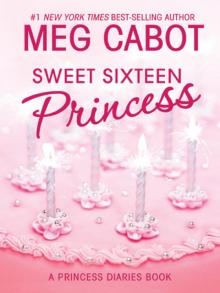 Sweet Sixteen Princess
Sweet Sixteen Princess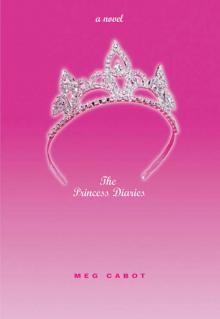 The Princess Diaries
The Princess Diaries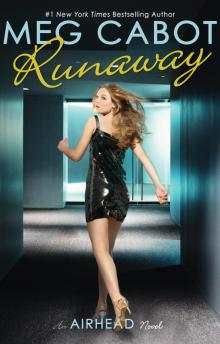 Airhead
Airhead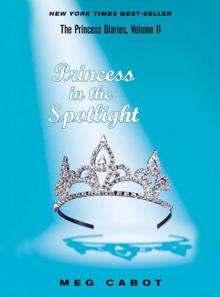 Princess in the Spotlight
Princess in the Spotlight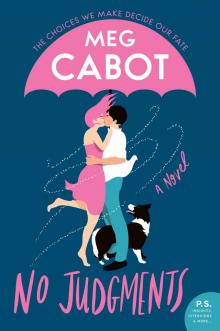 No Judgments
No Judgments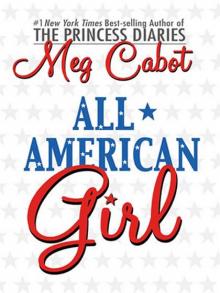 All-American Girl
All-American Girl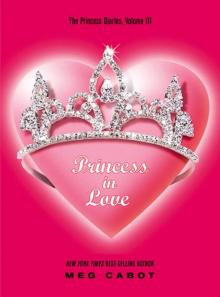 Princess in Love
Princess in Love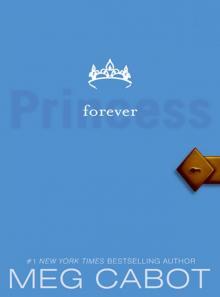 Forever Princess
Forever Princess Haunted
Haunted Shadowland
Shadowland Twilight
Twilight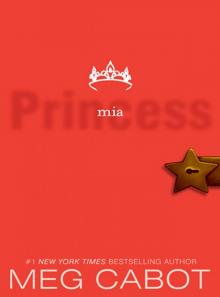 Princess Mia
Princess Mia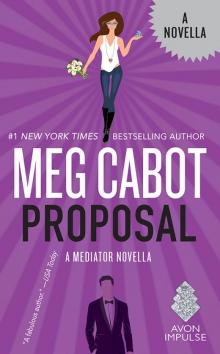 Proposal
Proposal Remembrance
Remembrance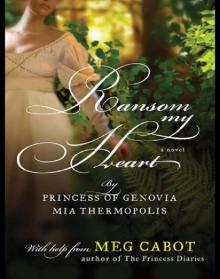 Ransom My Heart
Ransom My Heart Underworld
Underworld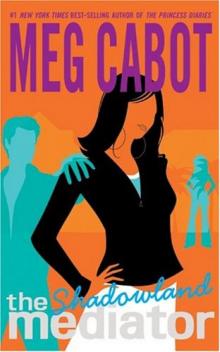 Shadowland tm-1
Shadowland tm-1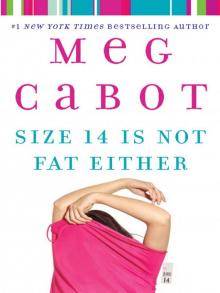 Size 14 Is Not Fat Either
Size 14 Is Not Fat Either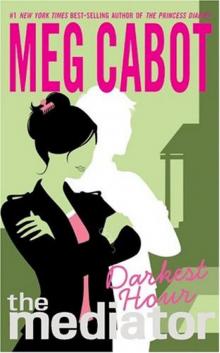 Darkest Hour tm-4
Darkest Hour tm-4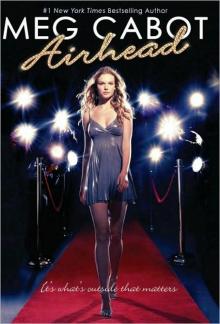 Airhead a-1
Airhead a-1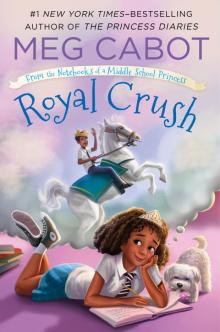 Royal Crush
Royal Crush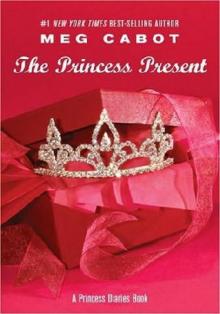 The Princess Present (princess diaries)
The Princess Present (princess diaries)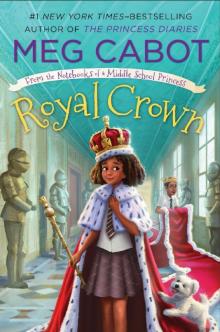 Royal Crown
Royal Crown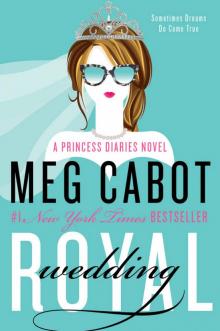 Royal Wedding: A Princess Diaries Novel (The Princess Diaries Book 11)
Royal Wedding: A Princess Diaries Novel (The Princess Diaries Book 11)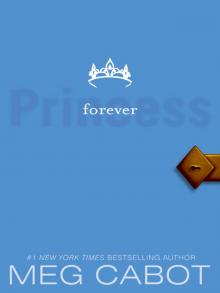 Princess Diaries, Vol. X: Forever Princess
Princess Diaries, Vol. X: Forever Princess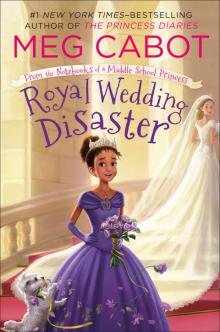 Royal Wedding Disaster
Royal Wedding Disaster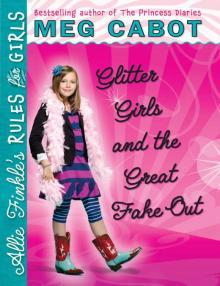 Allie Finkle's Rules for Girls: Glitter Girls and the Great Fake Out
Allie Finkle's Rules for Girls: Glitter Girls and the Great Fake Out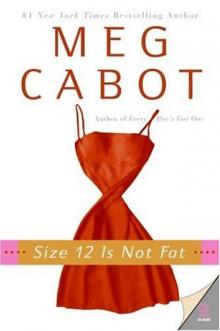 Size 12 Is Not Fat hwm-1
Size 12 Is Not Fat hwm-1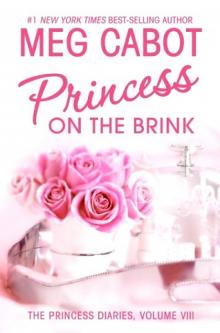 Princess on the Brink pd-8
Princess on the Brink pd-8 The New Girl
The New Girl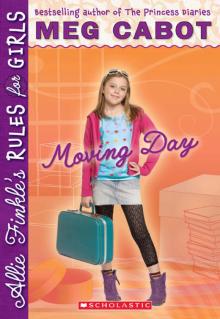 Allie Finkle's Rules for Girls: Moving Day
Allie Finkle's Rules for Girls: Moving Day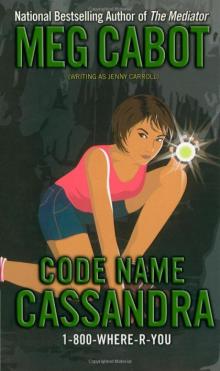 Code Name Cassandra
Code Name Cassandra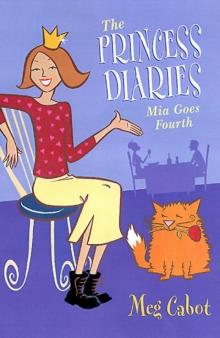 Mia Goes Fourth pd-4
Mia Goes Fourth pd-4 Sanctuary 1-4
Sanctuary 1-4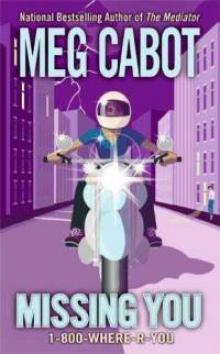 Missing You 1-5
Missing You 1-5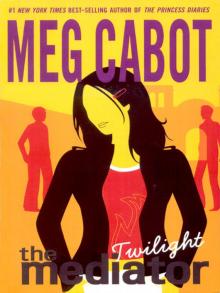 The Mediator 6: Twilight
The Mediator 6: Twilight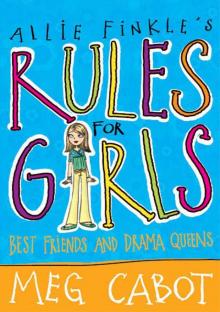 Allie Finkle's Rules for Girls: Best Friends and Drama Queens
Allie Finkle's Rules for Girls: Best Friends and Drama Queens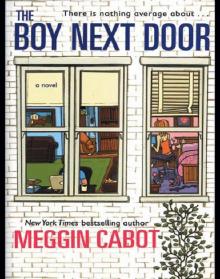 The Boy Next Door
The Boy Next Door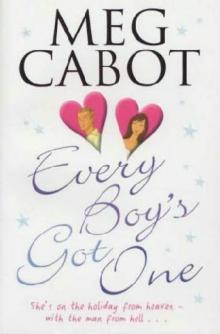 Every Boy's Got One
Every Boy's Got One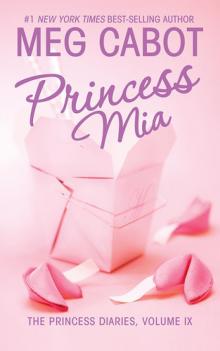 Princess Mia pd-9
Princess Mia pd-9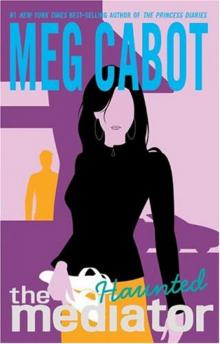 Haunted tm-5
Haunted tm-5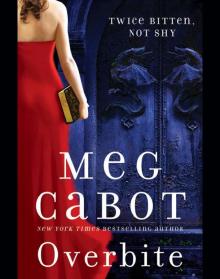 Overbite
Overbite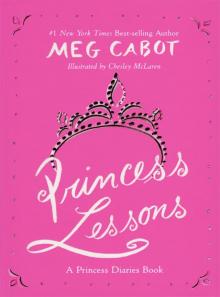 Princess Lessons
Princess Lessons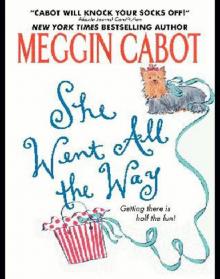 She Went All the Way
She Went All the Way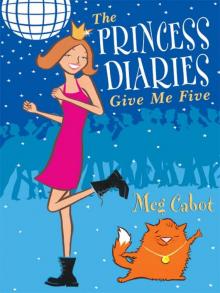 Give Me Five pd-5
Give Me Five pd-5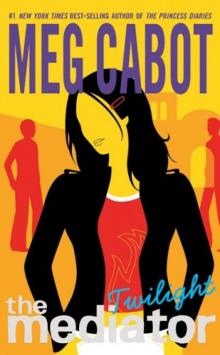 Twilight tm-6
Twilight tm-6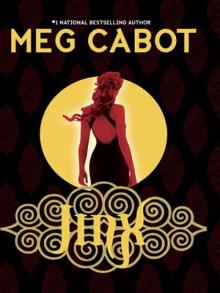 Jinx
Jinx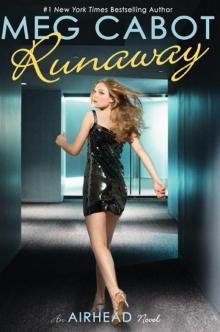 Runaway (Airhead #3)
Runaway (Airhead #3)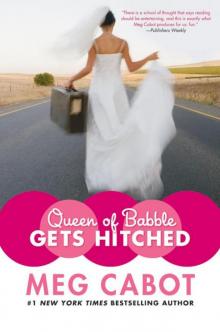 Queen of Babble Gets Hitched qob-3
Queen of Babble Gets Hitched qob-3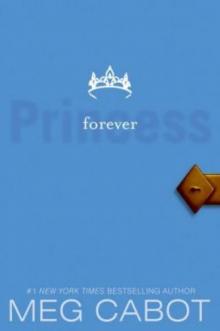 Forever Princess pd-10
Forever Princess pd-10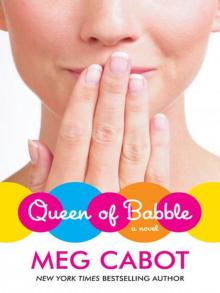 Queen of Babble
Queen of Babble Boy Meets Girl b-3
Boy Meets Girl b-3 Pants on Fire
Pants on Fire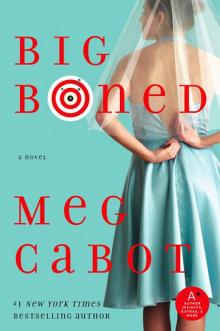 Big Boned ху-3
Big Boned ху-3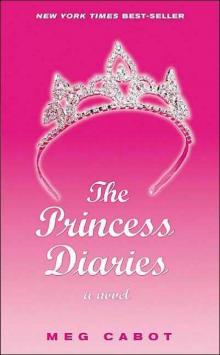 Princess' Diaries pd-1
Princess' Diaries pd-1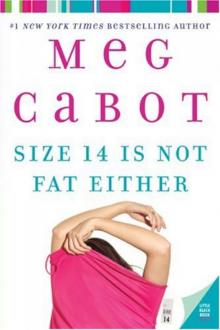 Size 14 Is Not Fat Either hwm-2
Size 14 Is Not Fat Either hwm-2 Awaken a-3
Awaken a-3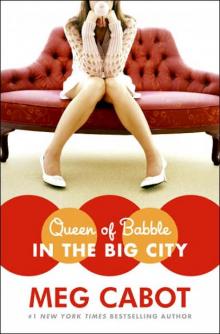 Queen Of Babble: In The Big City qob-2
Queen Of Babble: In The Big City qob-2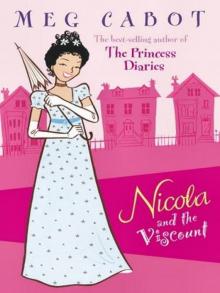 Nicola and the Viscount
Nicola and the Viscount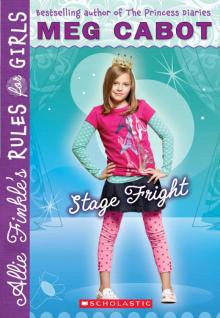 Allie Finkle's Rules for Girls: Stage Fright
Allie Finkle's Rules for Girls: Stage Fright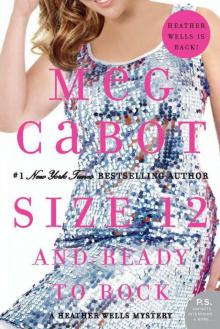 Size 12 and Ready to Rock
Size 12 and Ready to Rock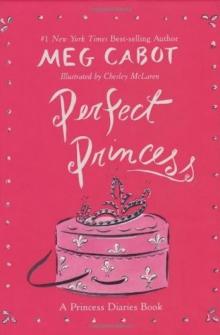 Perfect Princess
Perfect Princess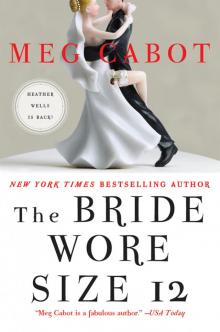 The Bride Wore Size 12
The Bride Wore Size 12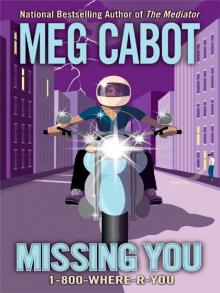 1-800-Where-R-You: Missing You
1-800-Where-R-You: Missing You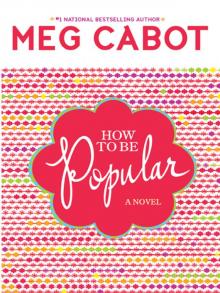 How to Be Popular
How to Be Popular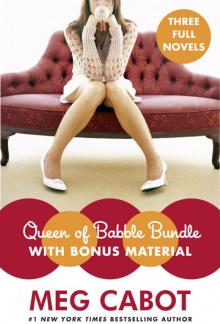 Queen of Babble Bundle with Bonus Material
Queen of Babble Bundle with Bonus Material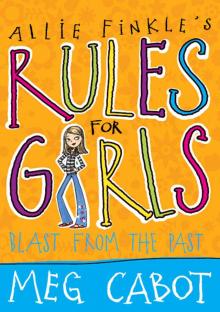 Allie Finkle's Rules for Girls: Blast from the Past
Allie Finkle's Rules for Girls: Blast from the Past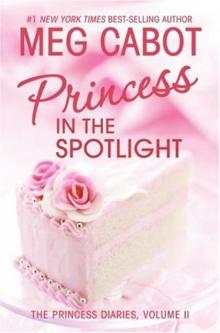 Princess in the Spotlight pd-2
Princess in the Spotlight pd-2 Ready or Not
Ready or Not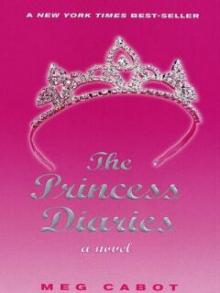 The Princess Diaries I
The Princess Diaries I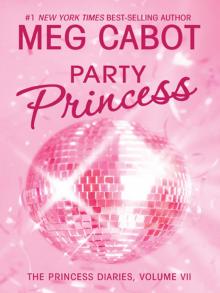 Party Princess pd-7
Party Princess pd-7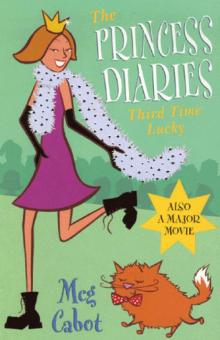 Third Time Lucky pd-3
Third Time Lucky pd-3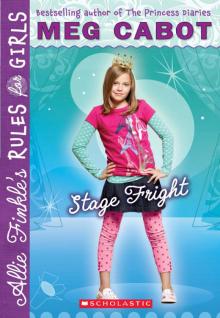 Stage Fright
Stage Fright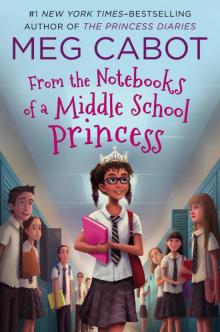 From the Notebooks of a Middle School Princess
From the Notebooks of a Middle School Princess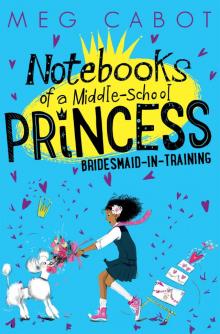 Notebooks of a Middle-School Princess Bridesmaid-in-Training
Notebooks of a Middle-School Princess Bridesmaid-in-Training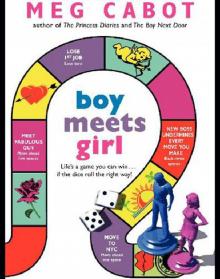 Boy Meets Girl
Boy Meets Girl Missing You
Missing You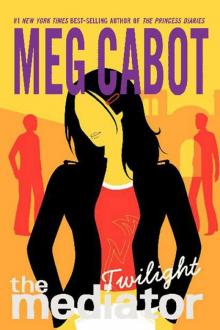 The Twilight
The Twilight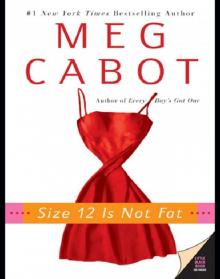 Size 12 Is Not Fat
Size 12 Is Not Fat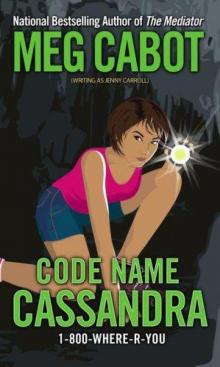 Code Name Cassandra 1-2
Code Name Cassandra 1-2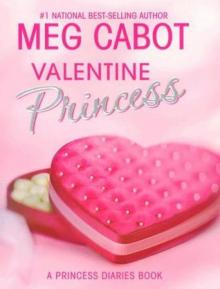 Valentine Princess
Valentine Princess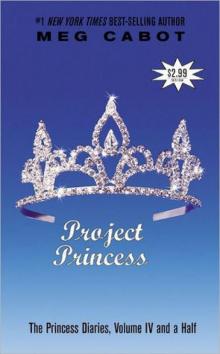 Project Princess
Project Princess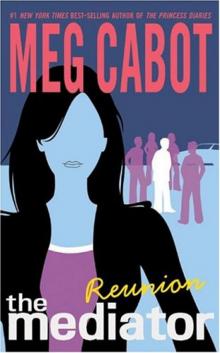 Reunion tm-3
Reunion tm-3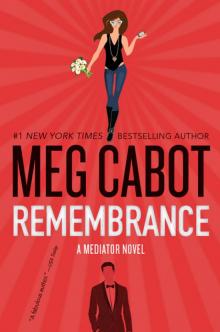 Remembrance: A Mediator Novel
Remembrance: A Mediator Novel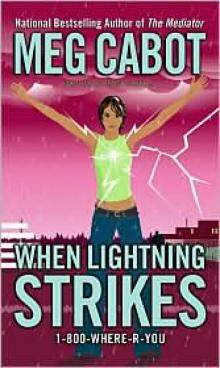 When Lightning Strikes 1-1
When Lightning Strikes 1-1 Safe House 1-3
Safe House 1-3 Teen Idol
Teen Idol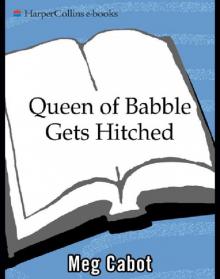 Queen of Babble Gets Hitched
Queen of Babble Gets Hitched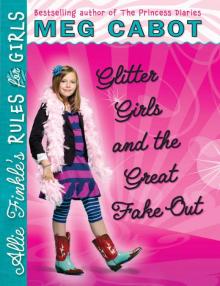 Glitter Girls and the Great Fake Out
Glitter Girls and the Great Fake Out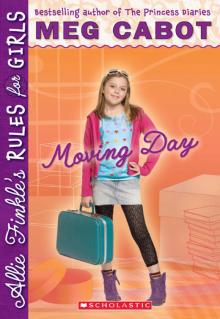 Moving Day
Moving Day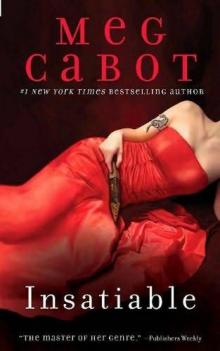 Insatiable
Insatiable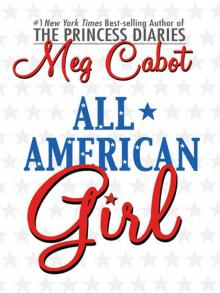 All American Girl
All American Girl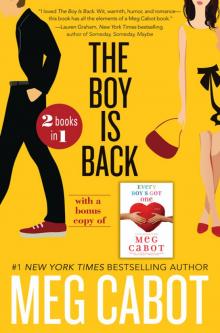 The Boy Is Back + Every Boy's Got One Bundle
The Boy Is Back + Every Boy's Got One Bundle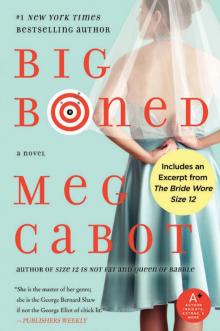 Big Boned
Big Boned Awaken
Awaken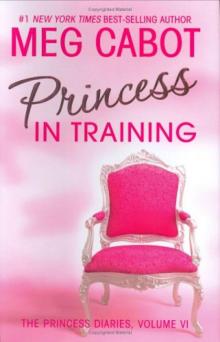 Princess in Training pd-6
Princess in Training pd-6